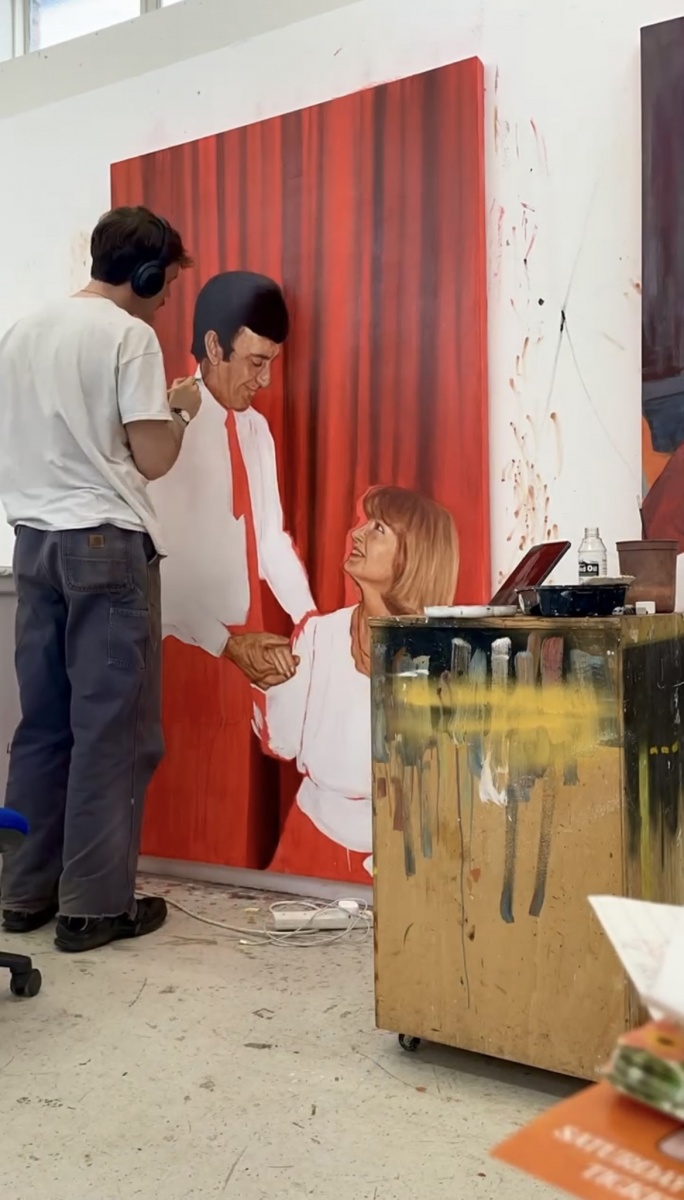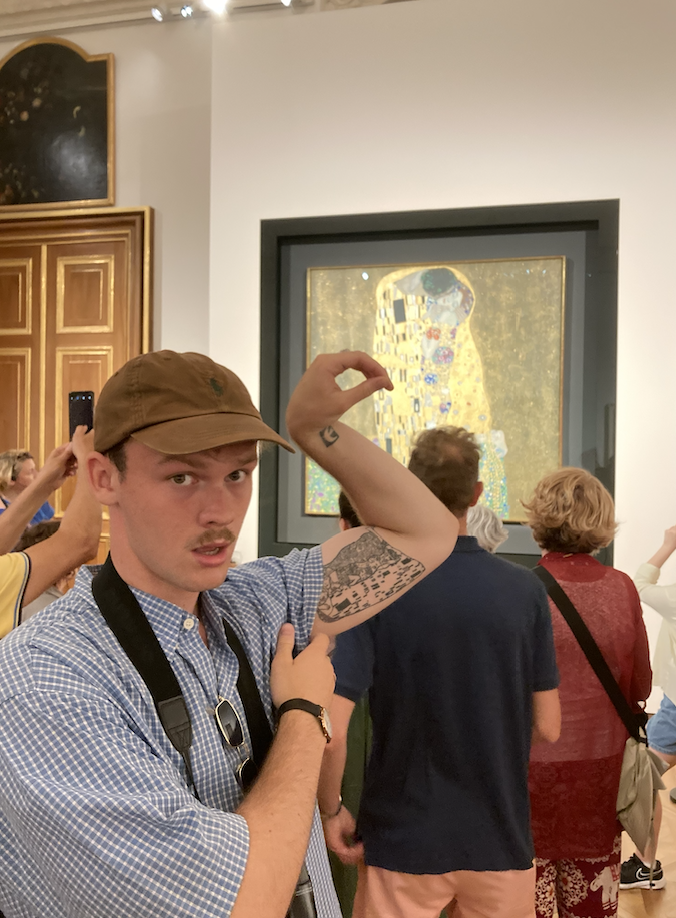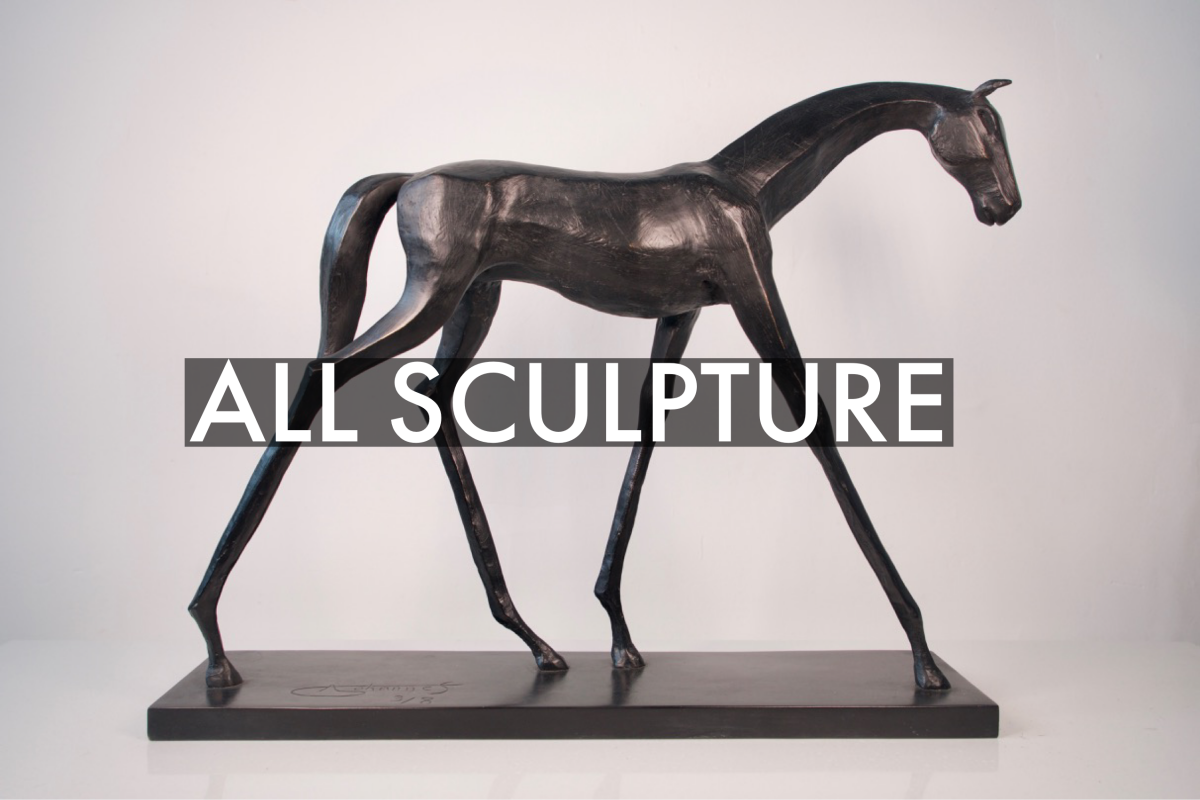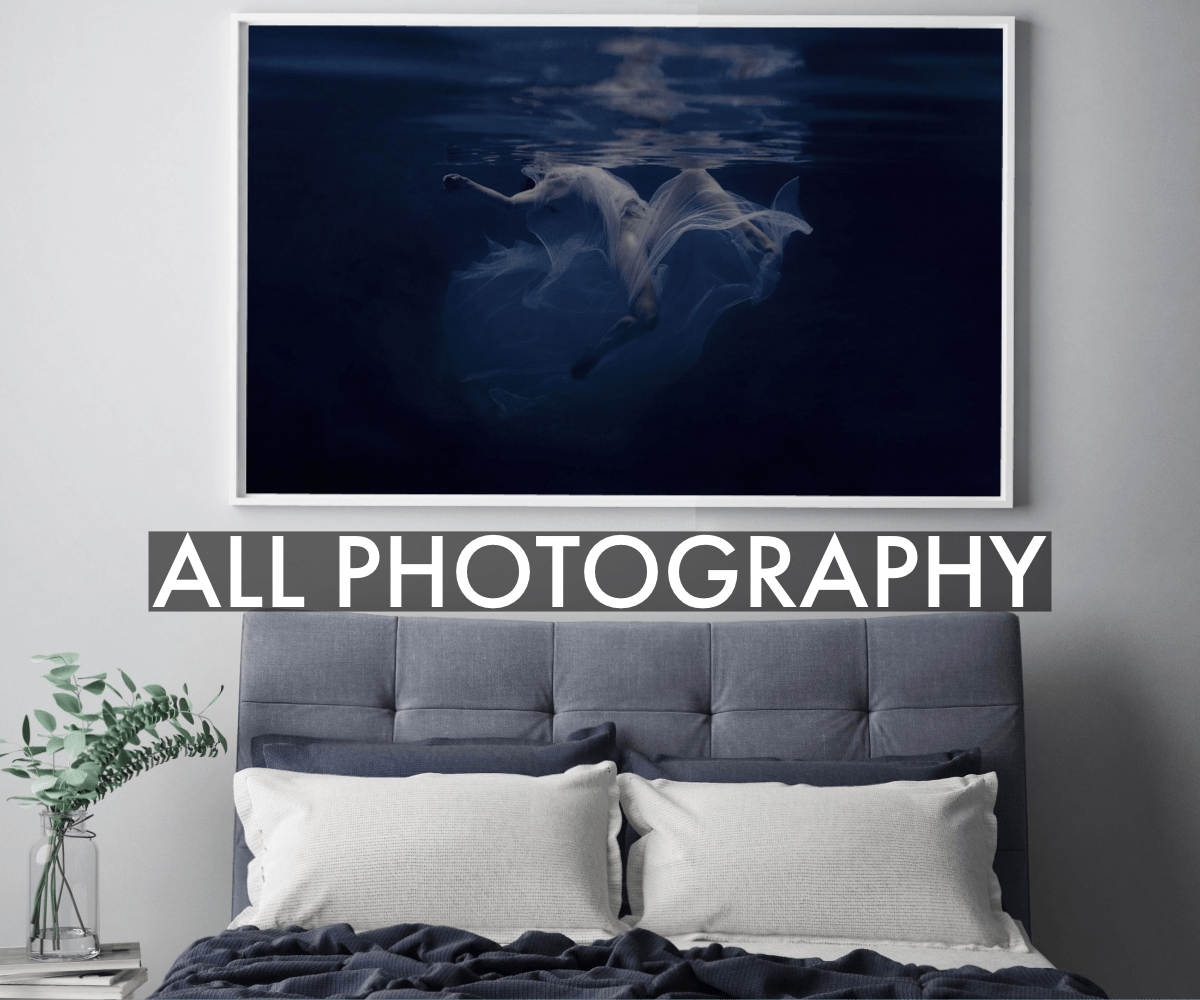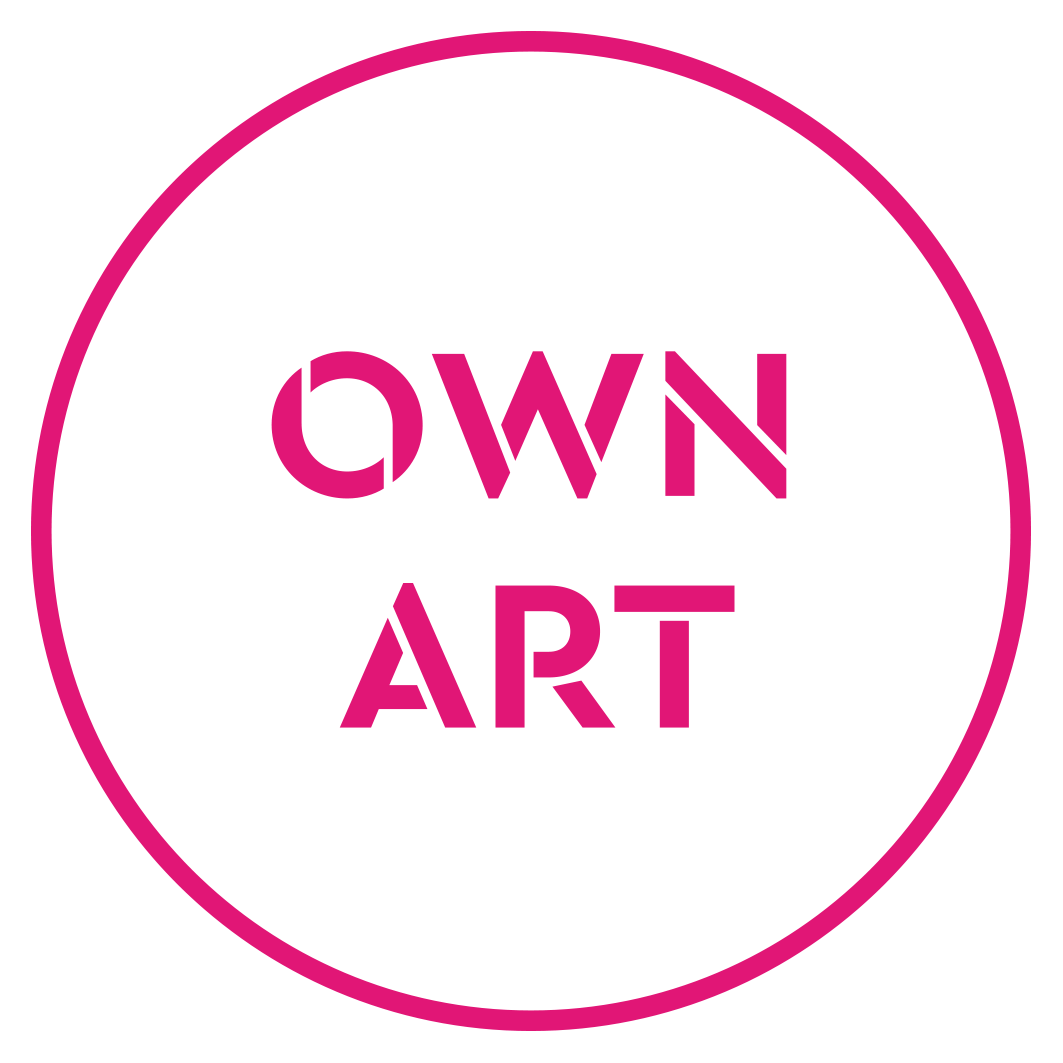Calder MacKay is a Scottish visual artist who graduated from Duncan of Jordanstone College of Art & Design, with a first-class degree in Fine Art. Working primarily in the mediums of painting and printmaking, calder works at scale and creates larger than life figurative oil paintings. The topic of masculinity and men in a general sense is one of the main overarching themes of his painting practice in recent years. His last body of work lay in examining relationships between men and women and how societal constructs of masculinity can influence how we view such relationships. By interweaving family histories, he attempted to deconstruct his own experiences of generational masculinity. Calder has been selected for many prestigious exhibitions including the Royal Scottish Academy's New Contemporaries Exhibition in 2025, and in 2024 won both the Boom Graduates Publication Award and the RSA David Michie Travel Award.

1) Which art movement do you consider most influential on your practice?
A very difficult question to answer but I think I’d say Modernism. Although it encompasses a wide array of different styles, It’s core values are something that I’ve always tried to relate to my practice.
2) Where do you go and when to make your best art?
My grandparents house. In the physical sense and metaphorical sense. A lot of my recent practice has centred around family histories and more recently my studio space has been set up in their now vacant home. This has allowed me a space to reflect and plan where I want my work to move toward. Im able to feel a strong connection to this very calming and meaningful space.
3) How do you describe your 'creative process'?
More recent works of mine have stemmed from a very visceral connection to the original source material. If something draws me to paint then I usually start there. As I work I tend to discover the ways in which the work resonates with me on another level.
4) Which artist, living or deceased, is the greatest inspiration to you?
Mark Tennant is one that immediately springs to mind. Over the making of my degree show I always found myself going back to his work to try and loosen myself up. I think it’s impossible to pick a singular artist but I think Tennant’s work is masterful. His brushwork and use of light and shadow and seemingly endlessly varied source material is something I’ve always admired. One of the great contemporary painters living today.
5) If you weren't an artist, what would you do?
Probably working with children to some degree, time spent with my younger siblings has shown me how much enjoyment I get out of teaching them things and their boundless interest in the world around them. I think it’s so important to help shape them into open and inspired people.
6) What do you listen to for inspiration?
The people around me, mainly friends and family. Not through their own doing, I just find these very personal relationships to be the source of most of my work. I think the intricacies of what I love in the world can be found in these relationships. I have a strong desire to make work about what I know, and what I know the best are the people around me. I’ve found these specific and personal stories tend to resonate with the wider public.
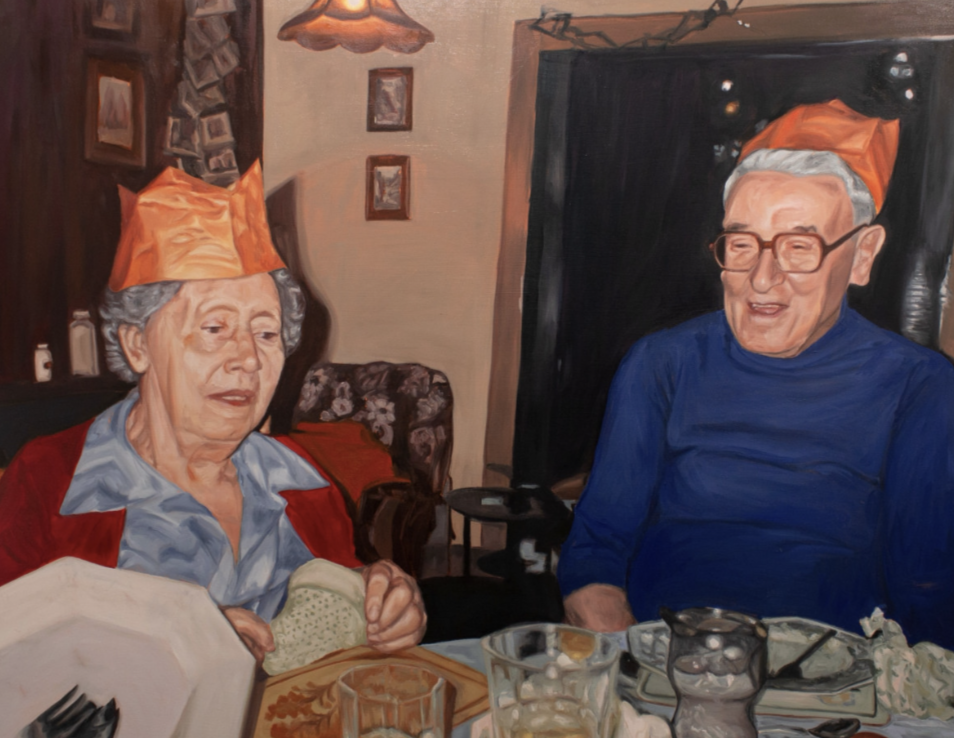
7) If you could own one artwork, and money was no object, which piece would you acquire?
Again a very difficult question to answer. I suppose a work that has been imprinted in my mine since a young age would be ‘The Kiss’ by Gustav Klimt. I now know this to be an iconic painting known all around the world. But when I was a young boy my mum had a smaller replica of the piece hung in the spare room of our house. And since I was a child I remember being in aw of it. Not fully understanding what I was looking at, this feeling has stayed with me till this day.
8) If your dream museum or collection owner came calling, which would it be?
I guess I’d say Tate Modern. I wanted to pick one that I’ve been to in the past. I remember when I first entered the Turbine Hall, feeling so belittled by the daunting space. Not that I would ever want to exhibit in such a space, just the freedom they can give to artists is incredible. On the cutting edge of what’s possible while also working with some of my artistic hero’s of the past.
9) What is your key piece of advice for artists embarking on a fine art or creative degree today?
Just keep on giving it a go I guess. There’s no set out path of where you should be or what you should be doing. If you feel lost or like things aren’t going your way, you always look back on those moments and realise it was in service of what you’re doing now. It might not seem it at the time, but if you just keep putting it effort, things will happen.
10) What is your favourite book of all time (fiction or non fiction)?
I don’t know if I’d say this is my favourite of all time, but I’ve just finished a book called “Tuesdays with Morrie”, I think it’s found a lot of people recently and I can see why. Follows a young man’s weekly meetings with his dying professor, just offers many great views on how we should all love our lives. What’s important and how we carry ourselves.
11) If you could hang or place your artwork in one non-traditional art setting, where would that be?
I’ve always liked art in pubs. I know it’s probably not the best place for it it be appreciated fully. But I do like when you’ve had a drink and you spot a nice painting on the wall. Although it can be very easy for a painting to stick out in such a place. But if done well I think work can compliment the space very well.
12) What was the biggest lesson your university course or time studying taught you?
How to work independently. How to trust your own ideas and intuition. I’m a big believer that everything works out in the end. But there was times during my four years I definitely didn’t feel like that. Just being able to feel secure in the work you make and how you make it.
13) And finally, if we were to fast forward 10 years, where would we find you?
Hopefully as a totally independent practicing artist. That might not sound like I’m shooting for the stars but that would be all I’d want. As long as I’m happy and still able to make work to support myself, I’d be more than happy with that.
Learn more about Calder and discover his collection of artworks
